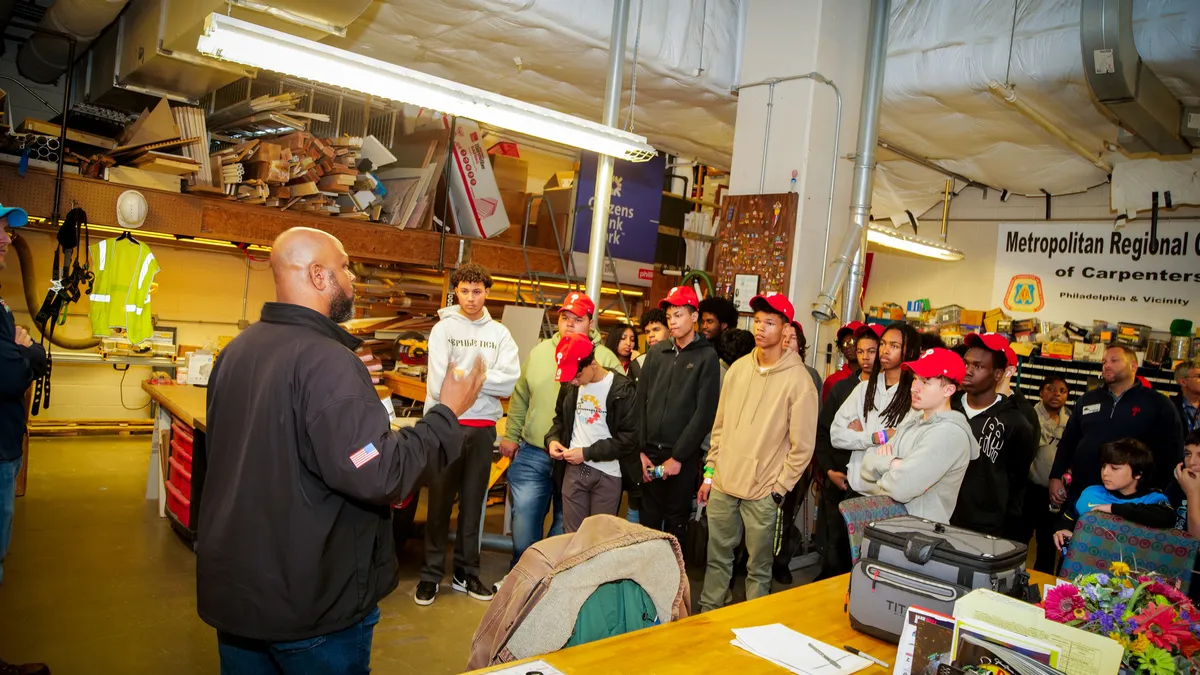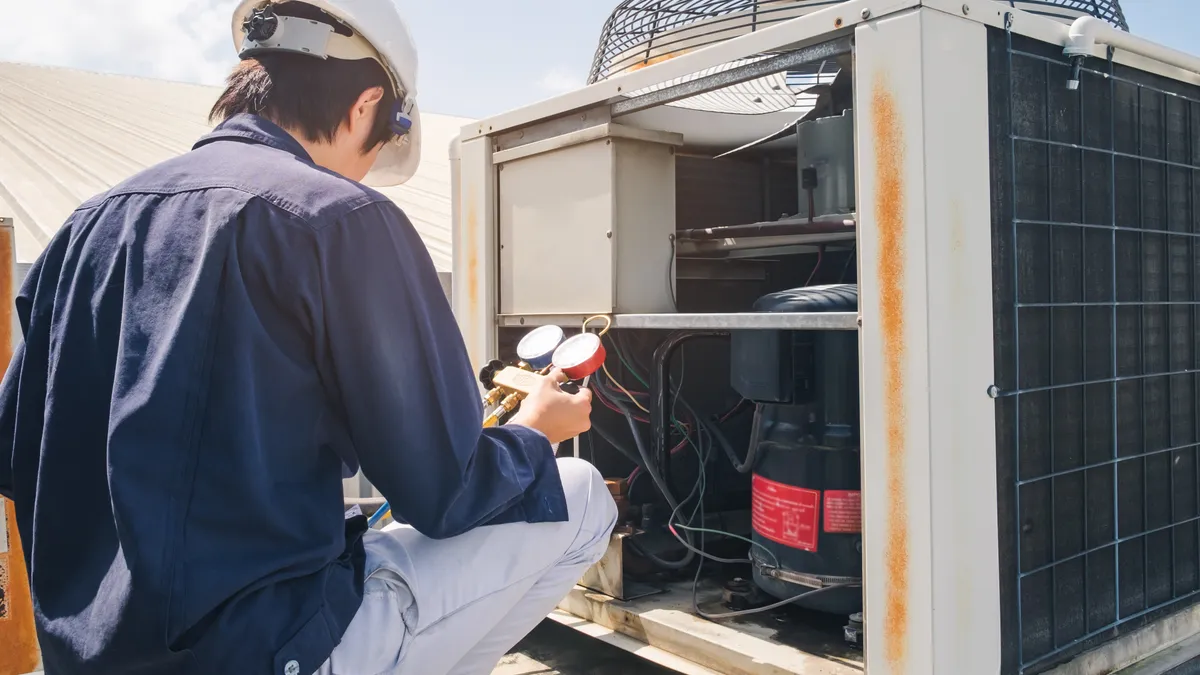National Skilled Trades Day takes place every year on the first Wednesday of May.
The wave of early retirements in 2020 and 2021 triggered by the COVID-19 pandemic has exacerbated the issue of skilled worker shortages in the building, construction and infrastructure sectors, according to a March labor shortage analysis by accounting and advisory services firm Marcum. At the same time, these industries are faced with a need to reduce energy use intensity and carbon emissions in buildings while integrating new technologies and ensuring smooth building operations.
Whether this means replacing a facility’s outdated HVAC system with an all-electric chiller, installing solar panels or renovating an office to better accommodate evolving hybrid work models, organizations increasingly require skilled tradespeople to accomplish their long-term goals and ensure satisfaction among occupants and other stakeholders.
While the problem is not expected to resolve overnight, efforts are underway to recharge the industry’s workforce with new talent.
NEST, an integrated facilities management firm, is one organization helping to lead that charge. Based in South Jersey, the company helped to establish the Skilled Trades Advisory Council in 2023, bringing in experts from a wide range of in-demand trades to help advocate for skilled trades as viable and fulfilling career options.
More recently, NEST, in concert with Major League Baseball’s Philadelphia Phillies, launched the Skilled Trades All-Star Program, an initiative aimed at guiding youth toward careers in the skilled trades.
The program’s inaugural education event on April 24 brought in students from Mercy Career & Technical High School and additional events are scheduled for August 1, featuring participants from all-girls construction camp MyWIC, NEST said in an April 18 news release. During the events, participants will “learn the intricacies of stadium operations, covering aspects from HVAC and groundskeeping to carpentry and maintenance,” NEST said in the release.
Targeting K-12 students through these programs “is crucial because early exposure can significantly influence career choice,” NEST CEO Rob Almond told Facilities Dive. “By introducing students to skilled trades through programs like the Skilled Trades All-Star Program, we plant the seeds of interest and appreciation for these professions from a young age.”
“This early engagement helps to normalize and elevate the perception of trades as desirable and important careers, building a robust workforce for the future,” said Almond, who helped form STAC.
One way to target these students involves working with colleges, according to Mike Schade, vice president of human resources at Johnson Controls. The company targets K-12 students by working with community college partners, Schade said, such as the Milwaukee Area Technical College, which works with schools in the area to provide access to training and college credits that can prepare students for careers in the HVAC field.
Schade said Johnson Controls also invests in the skilled trades pipeline at the K-12 level through corporate sponsorships. These include the company’s involvement with STEM 101, an organization that uses sponsor-specific learning modules to mentor and coach students from 6th grade through 12th grade. In Johnson Controls’ case, this means providing schools with low-cost building kits that can teach classes about building technology, Schade said.
When it comes to attracting older students, Johnson Controls works with community colleges to provide training programs that can train the next generation of building technicians. Last year, through a partnership with Lincoln Educational Services Corp., Johnson Controls launched a six-week training program on Lincoln Tech’s Columbia, Maryland campus.
Johnson Controls said the program was created to provide a pathway to employment at its locations throughout the country and plans to onboard approximately 130 new technicians or more each year through the initiative, with the company supporting students through on-site housing and relocation packages, according to a news release.
Outside of programs like this, success in fostering skilled trades talent comes from the company’s local managers engaging “day-in and day-out in the community,” Schade said. “These students are often … going to college at night. They’re helping raise a family. Maybe they’re helping pay for mom and dad’s rent. You’ve got to meet them where they are, and that takes work and energy from our local team.”
“The private sector is critical in addressing the skilled labor shortage,” Almond said. He said that NEST first looked internally at how it could lead the way by establishing partnerships, such as its Skilled Trades All-Star Program with the Phillies. “The tide has shifted, and we're thrilled that we're starting to see increased enrollment in trade schools nationwide,” Almond said. “But we have a long way to go.”






















